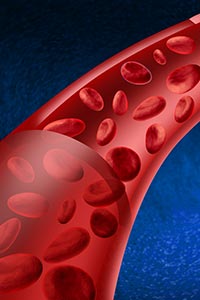Hematology is a medical branch that deals with the study of the nature, causes, prognosis, prevention, and treatment of diseases of blood.

A person who has undergone treatment for cancer or other serious illnesses may also be referred to a hematologist. A hematologist is a doctor who specializes in diagnosing, treating, and preventing blood-related illnesses, including blood disorders and hematopoiesis, bleeding disorders, hemostasis, platelet function, bone diseases, disorders of kidney function, and problems with iron utilization.
The term “hematological disorders” can refer to several things, including a blood disorder, which may include blood clots, polycystic kidney disease, myeloma, anemia, thalassemia, chronic granulocytopenia, hemophilia, hemolytic anemia, and polycystic kidney disease (PCPD). Hematological disorders are also referred to as hematologic conditions, because they affect the structure and functions of the blood. Anemia is a common hematological disorder, affecting millions of people throughout the world. It is characterized by low levels of red blood cells, or hemoglobin.
Hematologists examine the levels of hemoglobin in patients and evaluate whether their conditions need medical treatment. This can involve taking blood samples, testing the patient’s blood pressure, and performing chemical analysis on the patient’s blood.
People who have undergone surgery for cancer and other blood-related ailments may be referred to hematology specialists. A patient undergoing radiation therapy for cancer or other diseases that affect the blood may also be referred to a hematologist. Radiation therapy is often used to treat cancer and other blood-related conditions, and is also used for many other ailments, including cancer treatments. A radiation oncologist is a doctor who specializes in treating patients with cancer and other blood-related diseases and can help patients decide on treatments, such as radiation therapy.
The main goal of hematologists is to help patients cope with hemoglobin disorders. They may provide medications that help reduce the symptoms of hemoglobin disorders. Other therapies are available that improve the functioning of the blood cells and help them respond more quickly to treatment. A hematologist will also monitor the progress of a patient’s condition and help manage side effects of treatment.
Hematopathies are conditions that can cause a patient to have low levels of white blood cells (leukocytes) and platelet counts, leading to problems with normal cell function. These disorders may involve the body’s immune system, as well as internal organ function. They may result in infections and may require aggressive treatments. Chemotherapy and immunosuppressive drugs are commonly used to treat hematopoietic disorders.
A hematology specialist will help a patient to determine the best course of action for treating his condition.

Treatment can include surgery, chemotherapy, and other forms of treatment. Hematologist patients may be prescribed medication for treating their hematopoiesis, as well as a wide variety of other treatments, such as drugs that can boost their immune systems, vitamins and mineral supplements.
Hematopathies can be cured through the use of medicines, chemotherapy, and surgery. A diagnosis of a hematopathies in a patient is usually confirmed through a complete blood test.
Chemotherapy is used to treat hemoglobinopathies, as well as many other forms of hemophilia. Chemotherapy is used to kill cancer cells and prevent them from forming in patients. Chemotherapy is often combined with surgery. It can also be combined with other medications to treat patients with a combination of hematopoietic and bone marrow disorders. Chemotherapy is sometimes used after surgery to treat patients with the condition.
Bone marrow transplants are often used to treat patients with bone marrow disorders. A patient who has suffered a hematopoietic disorder and has experienced a bone marrow transplant may experience a relapse within a few weeks of the surgery. Chemotherapy can be combined with stem cells to treat patients with disorders of the bone marrow. A patient with leukemia may respond to treatment with chemotherapy and may also receive treatment with chemotherapy with stem cells, but not with stem cells alone. Some people may need chemotherapy with stem cells in combination with hematoprostagens, a form of chemotherapy used to treat leukemias and lymphomas.
Bone marrow transplantation is often the last resort for patients with a hematopoietic disorder. Blood transfusions can treat hematopoietic disorders, but not all patients respond to this form of treatment. A blood transfusion can help treat patients with disorders of the bone marrow, but not every patient will benefit from a blood transfusion.
Some patients may also need blood transfusions of their own bone marrow. If an individual experiences a relapse in his condition, or develops complications during treatment, it is possible to have blood transfusions from a donor. There may be some risk of side effects from blood transfusions, and some patients may need several cycles of blood transfusions before they become stable again.